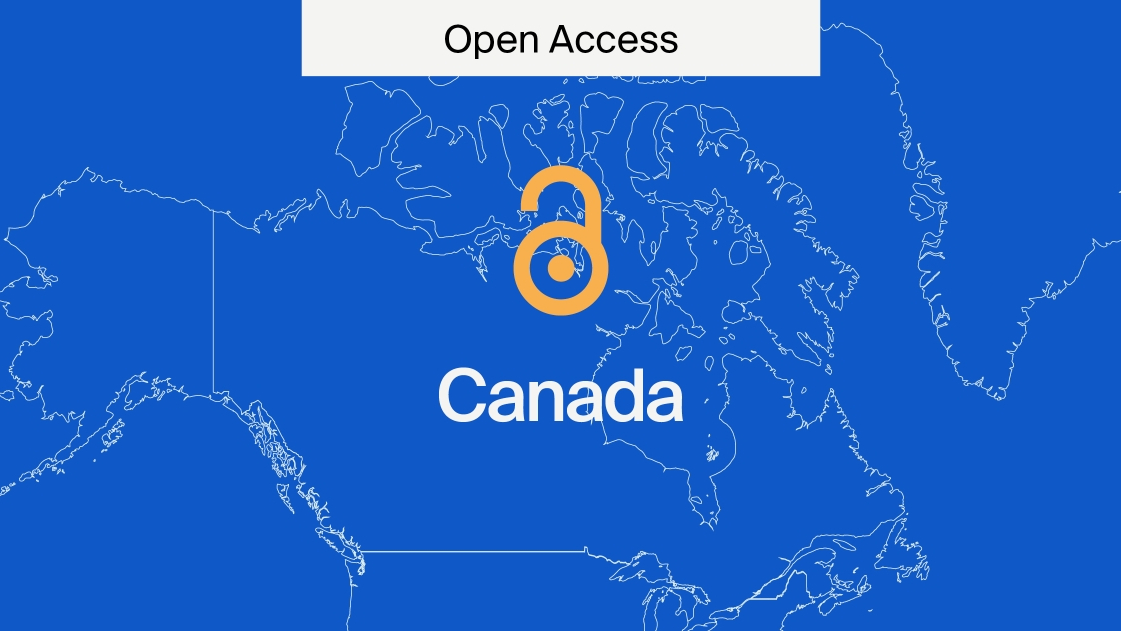
How MDPI Informs the Academic Community About Open Access
Open Access (OA) aims to increase the accessibility of research and boost its ability to create an impact. MDPI has been championing OA for over 25 years and remains committed to advancing open scientific exchange.
Each year, Open Access Week recognizes the importance of OA, exploring vital questions around it and the broader academic landscape. This year’s theme focuses on the question of ‘Who Owns Our Knowledge?’.
The theme involves exploring how communities can regain control over the knowledge they produce. The theme also questions who has access to education and research and how knowledge is created and shared, where it has come from, and whose voices are recognized and valued.
In this article, we provide some background to MDPI’s support for OA, how countries and institutions around the world are mandating OA, and conclude with the resources and opportunities MDPI offers relating to open knowledge.
MDPI is a pioneer in open scientific exchange
MDPI was founded in Basel, Switzerland, in 1996. The first journal MDPI launched is entitled Molecules, which was one of the first electronic journals on chemistry. The journal was free to read, meaning MDPI was practising Open Access before the term was coined.
Over the next 4 years, MDPI launched new journals including the International Journal of Molecular Sciences, Entropy, and Sensors. In 2006, MDPI professionalised and standardised its editorial handling of manuscripts across all journals, embracing a fully Open Access policy.
As of October 2025, MDPI has more than 485 journals with material that is free to read, distribute, and reuse, as long as it is cited correctly. Having multidisciplinary options is key for MDPI, as this ensures that research results across the whole spectrum of scientific research are available to scholars anywhere, any time.
Open Access requirements are increasing
A landmark publication on OA is the UNESCO Recommendation on Open Science; this text outlines the global benefits of making “multilingual scientific knowledge openly available, accessible and reusable for everyone”. This document is cited in various mandates and policies requiring openness.
Open Access policies or mandates are rules or requirements set by governments, funding agencies, or institutions that require work be published in an Open Access format to varying degrees.
How strict the requirements are can vary, with some suggesting and supporting OA publication and others requiring that all publications be published in a specific repository or journal. Also, different requirements will outline various ways that authors can publish Open Access, whether that be via green, gold, diamond, or a mixture of all.
Furthermore, Open Access policies tend to be related to a government’s aims, whether that be to expand its research output or find ways to boost development and innovation.
Arguably the most well-known OA policy comes from the European Union: Plan S mandates “full and immediate Open Access to peer-reviewed scholarly publications from research funded by public and private grants”.
Resources to help you understand OA policies and mandates
Researchers receiving support from a funder or institution or even working in certain countries must be mindful of different Open Access policies and requirements.
Navigating the details of policies can be time-consuming and detract from time spent researching; however, understanding them is important, as there may be penalties for not complying with publication requirements.
To support researchers, MDPI has developed a series of articles outlining different countries’ relationships with OA, exploring their histories, current policies, opportunities, and statistics.
All this information is centralized into an article which contains brief summaries of each country, with links to all the full articles, and is updated monthly. Click here to learn about Open Access Policies and Mandates Around the World and access the individual country articles.
Condensed versions of the articles are also available across MDPI’s social channels.
Understanding the complexity of open science
Open Access is part of open science, which is an umbrella term that advocates for making sure data, evaluation, and peer review are openly accessible, among other things. If Open Access aspires to make the results of the scientific process (articles) open, then open science seeks to open the entire research process.
Overall, open science aims to make scientific research more transparent and collaborative. As an umbrella term, advocates for open science approach it from many different aspects.
To help you better understand the diverse aspects of open science and OA, we have created many resources that explore the different aspects of the open science umbrella. Click here for All You Need to Know About Open Access, which features summaries and links to all the relevant articles.
Similarly, to help you better understand why OA is being implemented worldwide to tackle issues as broad as climate change and health research, we have created articles that explore open science from many different angles. Click here for Why Open Access is Important, which features summaries and links to all the relevant articles.
The resources we have highlighted are updated monthly and provide free access to vital information that will help you better navigate the changing academic landscape and make an impact with your research.
Supporting and training academics
MDPI is invested in empowering academic growth. Academic Publishing Workshops (APWs) are one of MDPI’s offerings. APWs are presentations run by experts that cover essential topics and aim to demystify Open Access publishing, equipping authors with the knowledge and skills they need to successfully publish their research.
They are designed for researchers at all stages in their careers, as well as stakeholders in the publishing industry. APWs are delivered at universities, research institutions, scientific academic centers, academic conferences, and PhD workshops.
Wherever they are conducted, they are tailored to the needs of those in attendance.
Topics addressed in APWs include:
- Improve your academic writing.
- How peer review maintains research quality.
- Improve your chances of publication success.
- Understand the publishing process.
- Discover Open Access publishing.
- Be aware of ethical guidelines.
- Increase your research’s impact.
The topics are designed to significantly increase the impact of attendees’ research within the academic community and prepare them for their career in a highly competitive industry.
With more than 25 years in multidisciplinary Open Access publishing, 485 journals (including X diamond OA journals), and partnerships with 800 institutions and consortia, MDPI is keen to leverage this experience to empower academics.
Supporting researchers from low- and middle-income countries
MDPI is leading the transition to Open Access publishing. To help researchers join in, MDPI regularly offers article processing charge (APC) waivers or discounts.
On average, more than 30% of the APCs for MDPI journals are waived each year.
Additionally, members of societies that are affiliated with an MDPI journal benefit from a discount, as do authors who are affiliated with institutions participating in the Institutional Open Access Program.
Moreover, for authors from low- and middle-income countries, waivers or discounts may be granted on a case-by-case basis. Applications that are submitted before article submission are assessed by the Managing Editor based on the quality of the research article and the authors’ ability to pay.
MDPI’s approach to waivers reflects its ongoing effort to ensure that research is not only accessible to researchers around the world, but that researchers globally can make their research accessible.
Who has a voice in open science?
On 13 October 2025, Preprints.org hosted a thought-provoking webinar exploring what meaningful participation looks like in creating and sharing knowledge.
Speakers from across the Open Science community discussed how diverse perspectives and the growing role of preprints can help build a more inclusive and collaborative research culture.
Click here to watch a recording of the webinar.
MDPI: ensuring knowledge belongs to all
“MDPI’s commitment to Open Access publishing is commendable and reflects their dedication to the advancement of knowledge.” – Dimitris C. Gkikas, Athens University of Economics and Business, Greece, Author published in Informatics.
“MDPI’s Open Access model enables the widespread dissemination of research, fostering collaboration and innovation among researchers worldwide.” – Edgar Cambaza, Universidade Aberta ISCED, Portugal, Author published in FinTech.
“Open Access publishing is the future, and MDPI has embraced that and become a leader in the field as a result.” – Bob Lansdorp, Milo Sensors, Inc., USA, Author published in Biosensors.
MDPI believes that knowledge should be available to all for the benefit of the world. That’s why advancing open scientific exchange has been MDPI’s mission for more than two and a half decades.
MDPI’s almost 30 years of experience in the publishing industry has enabled it to develop resources and opportunities for academics to learn about the complex landscape of Open Access publishing and open science.
If the outputs of scientific research should be openly available, then information about the industry, landscape, and policies should be too. MDPI is ensuring this is the case.
Click here to learn more about MDPI and Open Access Week 2025.










